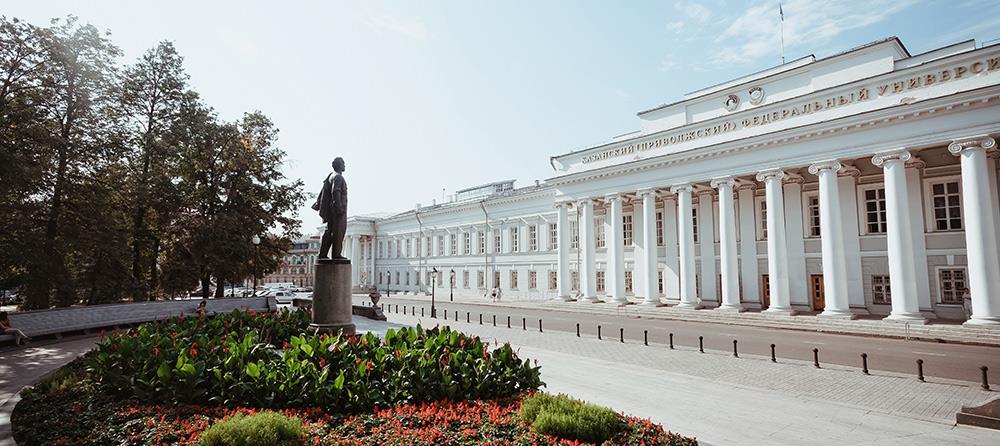
Year of foundation: 1804
Total students: 49 451
/
Faculties: 18 / Departments: 164
Faculty: 3 800
| Professors272 | Associate Professors1 059 | Doctors of Science374 | Candidates of Science1 200 | International faculty members43 |
Main educational programmes for prospective international students: 708
| Bachelor's programme334 | Master's programme259 | Specialist programme20 | Training of highest qualification personnel95 |
Additional educational programmes for prospective international students: 58
| Pre-university training programmes 9 | Russian as a foreign language 2 | Short term courses 2 | Other programmes 45 |
Kazan Federal University (KFU) is one of the oldest universities in Russian and was founded more than 200 years ago. It is the main educational centre of Tatarstan. Since 2009, it has held federal university status.
Today, KFU has:
- Over 2500 lecturers and researchers;
- 43 300 students;
- 300 Bachelor's, Specialist and Master's Degree Programmes and Postgraduate Programmes.
The university is noted for its academic schools in mathematics, physics, biology, chemistry, and linguistics. In terms of research, KFU gives priority to developments in pharmacology, biomedicine, geology, physics, chemistry, oil and gas, nanotechnologies and information technologies (IT), psychology and cultural studies, humanities, pedagogical and inter-disciplinary spheres.
KFU is a national research centre comprising 33 modern laboratories. They conduct research in the sphere of economics, electrosynthesis of aromatic compounds, applied radiophysics and applied mathematical modelling.
New laboratories in the fields of physics, biology, biomedicine, geology, ecology and chemistry will open soon.
KFU has almost 40 years' experience in teaching international students.
Today, KFU comprises 17 institutes, 3 higher schools and 3 branches in cities located in the vicinity, which specialise in the following subjects:
- Physical and mathematical sciences.
- Natural sciences.
- Medicine.
- Education and pedagogy .
- Humanities.
- Social sciences.
- Economics and management.
- Geology and mineral prospecting and development.
- Automation and control.
- Services sphere.
- Culture and arts.
- Information science and computer technology.
- Geodesy and land management.
- Life safety, environmental engineering and environmental protection.






















































